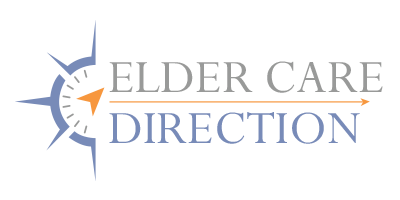Most people know that they should have life insurance but may put off getting it. Deciding what type of policy to purchase can be intimidating. The staff at Elder Care Direction help families and elderly people navigate the complex issues that may be involved with the aging process and can help you to understand more about your life insurance needs.
Types of life insurance for seniors
While there are many different types of life insurance available, we’ll cover the primary types of plans for seniors.
Term life
Term life insurance offers higher coverage amounts at lower prices. People who are healthier may pay the lowest premiums. Term life covers you for a set number of years while keeping your premiums the same each year. Senior citizens may be limited in the allowed number of years in their term plans in the following ways:
- 30-year term life plans may be unavailable after the ages of 50 to 55
- 20-eyar plans may be available up to ages 60 to 65
- Seniors who are in their 70s may be limited to 10-year plans
There are three different types of term life plans, including level, convertible, and renewable term life insurance.
Level term
Level term life insurance plans are those that specify a level death benefit and a level premium. When the term’s policy expires, there will be no cash value. You will be allowed to extend your coverage for an additional number of years. The annual rates that you might pay after an extension will be higher.
Convertible term
Convertible term life policies allow you to convert them to permanent life insurance when they expire. Most policies that let you do this will mandate that you convert them before the terms expire or by the time that you reach age 70.
Annual renewable term
Annual renewable term plans are renewable each year. they are beneficial to anyone who needs to be covered for a short time. These plans have annual rate increases, but most of them do not require you to requalify each year.
Guaranteed universal life
Guaranteed universal life is a type of permanent insurance with some guarantees. Your premiums will remain the same during your policy. It is a safe insurance policy because it is not affected by the financial market. Premiums are also able to be set for a long period of time, including up to the remainder of your life. You are also able to set the age of maturity for your policy.
Riders for living benefits and long-term care
People are able to add living benefits and long-term care riders to their insurance policies. This gives you access to some of your death benefit while you are still living and can help to defray the costs of long-term care.
Best options for seniors
In general, the best options for seniors are term life and guaranteed universal life because they are more affordable and allow you to add riders.
The pros of term life insurance include the following:
- Can replace your lost wages
- Can help to cover debt if you die prematurely
- Cheaper premiums
- Can be converted
- Can add riders
The cons of term life include the following:
- No cash value accumulation
- Policy end-date
The pros of guaranteed universal life insurance include the following:
- Premiums do not go up
- Guaranteed death benefit
- Can set age option to 120
- Can purchase through age 85 with a physical exam
- Can add riders
The cons of guaranteed universal life include the following:
- No cash value accumulation
- Penalties for late payments
Life insurance becomes more expensive as you grow older. If you are thinking about getting coverage, it is a good idea for you to choose a policy sooner rather than later. However, even if you are older, you can still likely find an insurance policy to meet your needs. To learn more, contact Elder Care Direction today to schedule an appointment.







